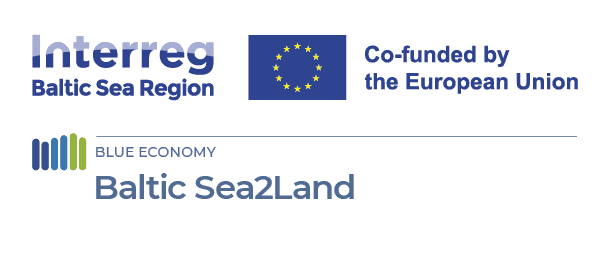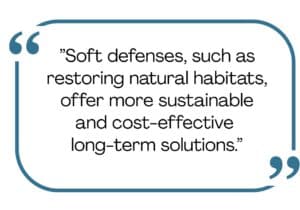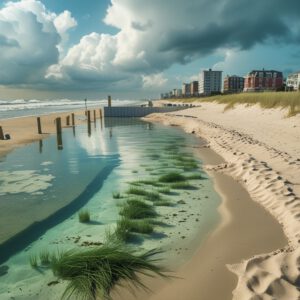
Coastal municipalities and climate change with focus on sand beach management, flood protection and sea grass restoration
17 July 2025
World coastal regions have high and constantly growing population densities, with about 37% of the world’s population living in these regions, which are particularly vulnerable to the consequences of climate change, including sea level rise and extreme events like storms and surges. Climate change impacts to coastal communities affect not only human health, but also properties, infrastructure, and services. The effects of climate change on coastal areas worldwide have been observed for decades and they include e.g. coastal erosion and changes in societal behaviors, due to e.g. declining fisheries.
Coastal municipalities and communities play a key role in supporting all components of the ocean economy, as well as a range of social and cultural values, and all forms of coastal and marine management and governance. Many communities are taking steps to protect coasts from climate change.
These communities need to make science based decisions on which approach to apply. The coastal protection strategies involve both hard and soft engineering approaches, as well as, in dramatic circumstances, adaptation measures like relocating vulnerable communities. The hard measures involve seawalls and dikes, which give immediate protection but can also induce erosion elsewhere. Soft defenses, such as restoring natural habitats, offer more sustainable and cost-effective long-term solutions. Adaptation strategies also include adjusting land use and infrastructure, and in some cases, managed retreat from coastal areas.

The interactive workshop ”Tackling Consequences of Climate Change in Coastal Municipalities” during the 5th Baltic MSP Forum will address the challenges of climate change for coastal municipalities in the Baltic Sea Region. Participants will explore innovative approaches and best practices in three key areas:
- Sand beach management: Techniques for the conservation and regeneration of beaches in the face of rising sea levels and increasing coastal erosion.
- Flood protection: Modern protection measures and nature-based solutions for adapting to extreme weather events and storm surges.
- Seagrass restoration: Ecological and coastal protection significance of seagrass meadows and methods for their reintroduction and maintenance.
The workshop includes examples of case studies, group discussions and practical exercises to promote the exchange of knowledge between participants. Experts from science, administration and practitioners will share their experiences, and jointly develop strategies for sustainable coastal development. The 5th Baltic MSP Forum will take place on 11-12 November 2025 fully on-site in Riga, Latvia. More information and registration for this event: www.BalticMSPforum.eu.
The 5th Baltic MSP Forum is organised by the VASAB Secretariat together with the Ministry of Smart Administration and Regional Development of the Republic of Latvia, as the Lead Partner of the Interreg Baltic Sea Region project Baltic Sea2Land, and in cooperation with the partners of the project’s consortium. The 5th Baltic MSP Forum is supported by the Interreg Baltic Sea Region Programme 2021-2027 – through the Subsidy contract for the project #C018 Baltic Sea2Land of Interreg Baltic Sea Region.
Author of text: Tymon Zielinski,
Institute of Oceanology Polish Academy of Sciences






